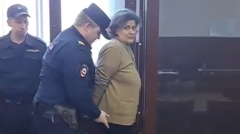A parliamentary committee report criticizes outdated laws for failing to allow timely police responses to misinformation surrounding a violent incident at a dance class, resulting in deadly riots across multiple cities.
Outdated UK Legislation Fuels Misinformation Catastrophe During Riots

Outdated UK Legislation Fuels Misinformation Catastrophe During Riots
A report reveals that Britain's laws hindered police efforts to address false narratives following a tragic attack, sparking widespread unrest.
In a stark revelation, a new report issued by a government committee highlights that Britain's existing legislation regarding police communication is deeply inadequate for the contemporary social media landscape. This finding comes in the wake of severe riots caused by misinformation following a tragic stabbing incident at a Taylor Swift-themed dance class in Southport last summer.
On July 29, a teenager committed a horrific attack that left three young girls dead and incited unrest in several towns across England, fueled primarily by far-right elements. With false narratives circulating online—specifically unfounded claims suggesting the attacker was an undocumented Muslim immigrant—the situation deteriorated rapidly.
The report criticized the void of official information from authorities as a critical factor enabling the misinformation to thrive. It pointed to centuries-old British laws established to prevent jury bias that unexpectedly hampered the police's ability to issue corrections swiftly. As a result, millions of people were misinformed before the police clarified that the suspect, Axel Rudakubana, was British-born and not driven by any specific political or religious ideology but displayed an obsession with violence.
The Home Affairs Committee's findings are the outcome of four months of hearings with police leaders, government figures, and emergency service personnel. Lawmakers from various political backgrounds agree that comprehensive reforms are essential to enhance the police's capacity to engage with misinformation in real-time, especially amidst incidents of public disorder.
On July 29, a teenager committed a horrific attack that left three young girls dead and incited unrest in several towns across England, fueled primarily by far-right elements. With false narratives circulating online—specifically unfounded claims suggesting the attacker was an undocumented Muslim immigrant—the situation deteriorated rapidly.
The report criticized the void of official information from authorities as a critical factor enabling the misinformation to thrive. It pointed to centuries-old British laws established to prevent jury bias that unexpectedly hampered the police's ability to issue corrections swiftly. As a result, millions of people were misinformed before the police clarified that the suspect, Axel Rudakubana, was British-born and not driven by any specific political or religious ideology but displayed an obsession with violence.
The Home Affairs Committee's findings are the outcome of four months of hearings with police leaders, government figures, and emergency service personnel. Lawmakers from various political backgrounds agree that comprehensive reforms are essential to enhance the police's capacity to engage with misinformation in real-time, especially amidst incidents of public disorder.



















